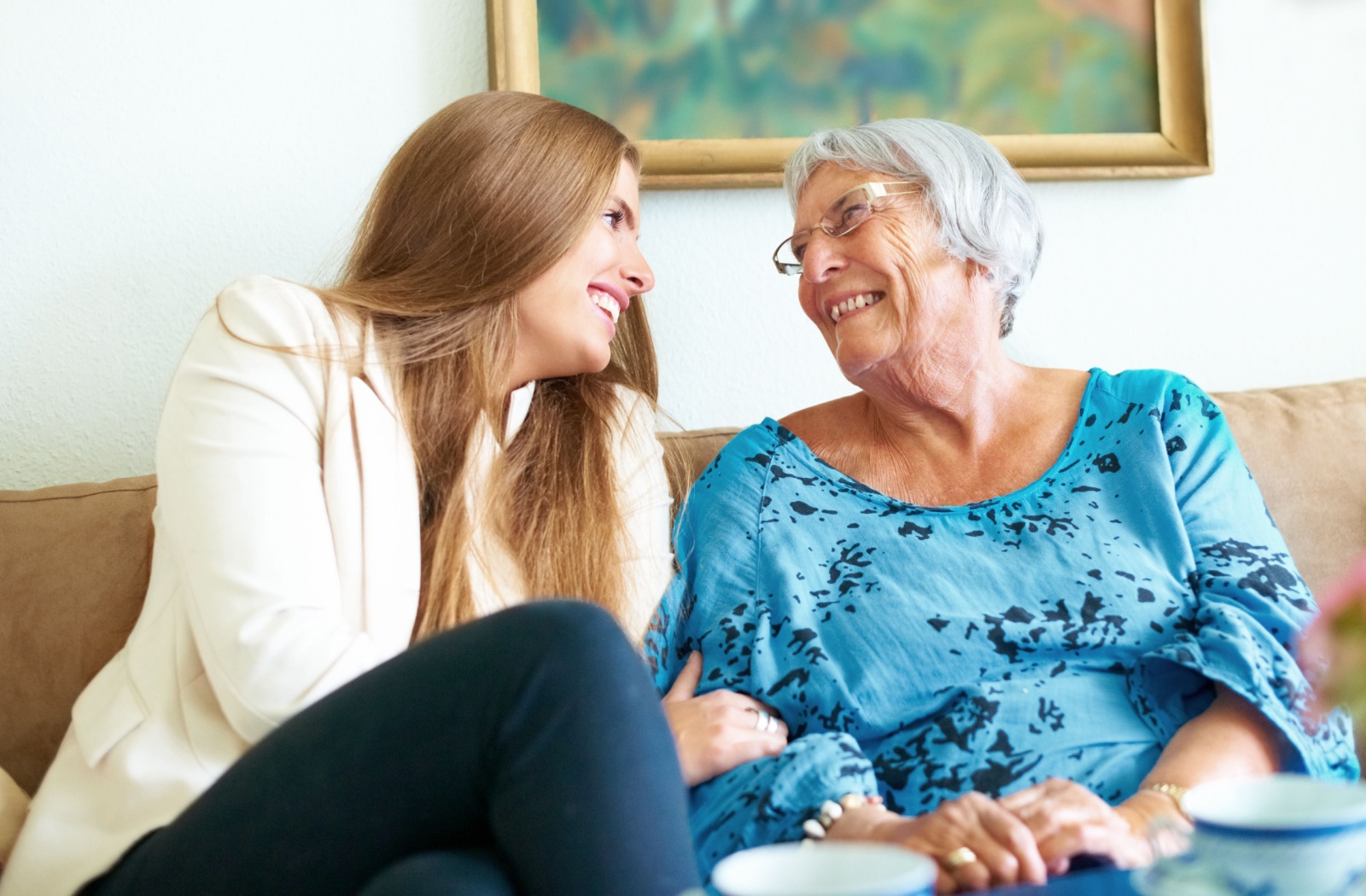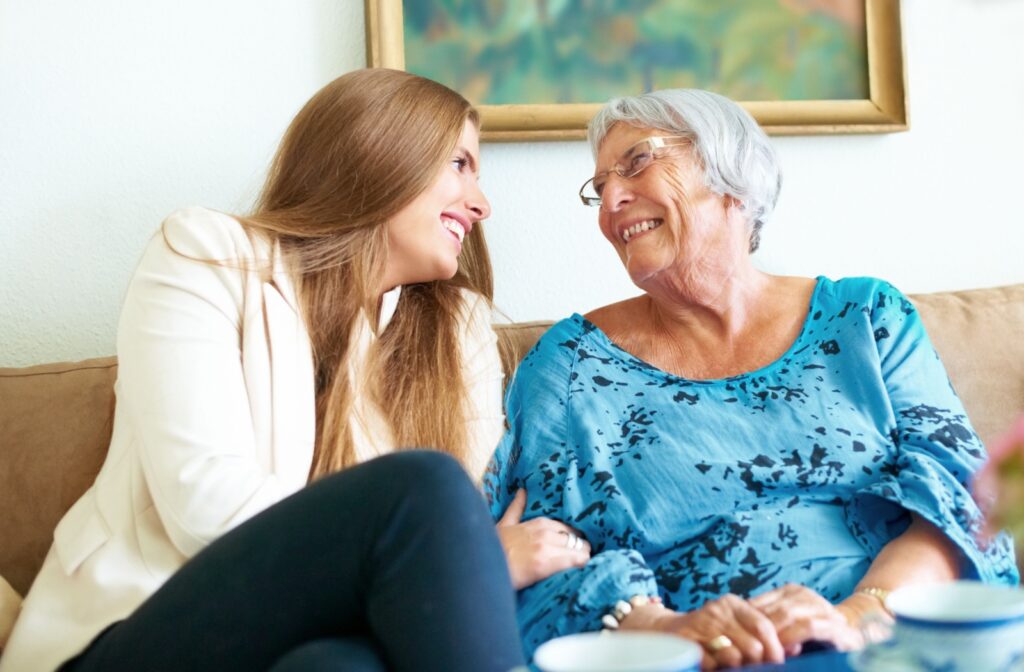Key Takeaways
- Assisted living supports daily tasks like meals, bathing, and medication reminders while promoting independence.
- Skilled nursing homes provide 24/7 medical care for more serious health needs or post-surgical recovery.
- Assisted living may be right if your mom is still social and independent but needs help around the home.
- Skilled nursing is a better fit for complex conditions that need constant medical supervision.
- Evaluating your mom’s daily routines, safety, and medical needs can help guide your decision.
Is Assisted Living or a Nursing Home Better for a Parent?
Watching your mom face new challenges at home can be emotionally complex. You want her to stay safe, but you also want to support her independence and dignity. For many families, this leads to a key question: Does my mom need assisted living or a skilled nursing home?
The right answer depends on how much help she needs, what type of care is required, and where she would feel most comfortable. Assisted living can help her stay independent, but it’s not designed around providing medical care. If she needs advanced healthcare in her daily life, a skilled nursing home may be more ideal.
Assisted Living vs. Skilled Nursing Homes
Choosing between assisted living and skilled nursing care starts with understanding how the two differ. While both offer support, they serve different purposes and populations.
What Is Assisted Living?
Assisted living communities are designed for older adults who want to stay active and social but need help with everyday tasks. Residents often live in private apartments and receive support with things like:
- Medication reminders
- Meal preparation
- Housekeeping
- Bathing, dressing, or grooming
These communities emphasize independence, personal choice, and connection. So, assisted living communities offer shared dining rooms, activity spaces, and outdoor areas that promote movement and socializing.
What Is Skilled Nursing?
For other families, medical needs are the driving force behind a care transition. If your mom’s health has changed, it helps to consider skilled nursing. These communities provide:
- 24/7 monitoring by licensed nurses
- Complex medication management
- Post-surgical recovery and wound care
- Support for chronic conditions like advanced diabetes or heart failure
The environment is more clinical, with a focus on safety, stabilization, and health outcomes. Many residents have significant health challenges that need daily oversight from trained medical professionals. This care can be offered both for short-term and long-term situations.
Signs Your Mom Might Benefit From Assisted Living
Sometimes, the need for change starts small. Your mom might be mostly independent, but needs some help with daily tasks like cleaning or dressing. If small tasks have become frustrating, or she’s withdrawing from the things she once loved, assisted living can help.
These all indicate that it’s time for assisted living:
- She forgets to take medications or take them correctly
- Cooking, cleaning, and other chores have become difficult
- She avoids bathing or personal care tasks
- Her fridge is empty or filled with expired items
- She’s stopped seeing friends or joining community activities
- She expresses loneliness or frustration
- You’re feeling burned out as a caregiver
In these situations, assisted living could offer the right level of care. It’s a way to stay active and social while having support in place for everyday challenges. Assisted living can restore ease and comfort to her life, which lets her keep living on her terms.

When Skilled Nursing Care Might Be More Appropriate
Skilled nursing homes are equipped for more complex situations. They offer round-the-clock support designed around keeping residents healthy and safe.
These all indicate that skilled nursing care could help:
- She needs medical equipment that requires monitoring or support
- She’s recovering from surgery or a recent hospital stay
- Her condition requires regular health assessments by professionals
- Chronic illnesses (like heart or lung disease) are hard to manage at home
- She’s experienced multiple falls or safety events
- She needs IV therapy, wound care, or pain management
- Her doctor recommends long-term supervision
If these sound familiar, it’s time to look into skilled nursing care near you. This can help give your mom the care needed to stabilize her health and reduce risks.
How to Choose the Right Type of Care
Every family’s situation is different. This means that the choice between assisted living and skilled nursing isn’t black and white. The best place to start is with a clear look at your mom’s daily habits, health needs, and personal preferences.
Here are a few things to assess when weighing care options:
- How much help does she need with daily activities like bathing, dressing, or managing medications?
- Does she have any conditions that require regular medical monitoring or treatment?
- Is she recovering from surgery or managing a chronic illness that affects her mobility or energy levels?
- Is she safe living at home, or have there been falls or safety concerns?
- Is she socially engaged or showing signs of withdrawal, loneliness, or frustration?
- How often are you or other caregivers stepping in to help—and is that sustainable?
Looking at these questions together can help clarify the type of care that will keep your mom healthy, supported, and at ease. This isn’t just about now, either. It’s about her future.
Next Steps: How to Decide Together
Choosing between assisted living and skilled nursing isn’t always easy, but you don’t have to do it alone. Here at Reena Senior Living, we support families through this process every day. Whether you’re exploring assisted living or other care options, our team is here to answer your questions with compassion and care.
Your mom deserves a place where she’d feel most comfortable, and we’re happy to offer her a new home in our community. Our team is here to answer your questions and help you explore whether our services might be right for your mom. Book a tour with us today, and together, we can support your mom’s journey.



